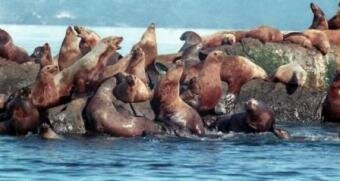A team of mathematical experts have said that 1729, which is also known as the Ramanujan-Hardy number, is linked to aspects of string theory and...

The US and Alaska state officials made an announcement on Wednesday that they will no longer demand an additional $92 million from Exxon Mobil Corp. to pay for environmental cleanup and restoration that aroused from the huge Exxon Valdez oil spill around three decades ago.
The state of Alaska and the US Justice Department, in court documents filed on Wednesday, said that they are going to drop left judicial action and would no longer seek the extra money from Exxon because of the recovery of a number of species like ducks and sea otters, present in Alaska's Prince William Sound.
In a statement, Alaska Attorney General Craig Richards, said, “Although we will not be pursuing Exxon for additional damages, our decision today does not close the book on lingering oil”.
In March 1989, the tanker Valdez ran aground and drained nearly 11 million gallons, or 260,000 barrels, of crude oil into the icy waters off the southern coast of Alaska. At that time the spill was the biggest ever in US waters, and was also among the worst human-caused environmental disasters.
Environmental officials said that in the months after the spill, the oil slick covered over 1,300 miles of Alaska's rocky, pristine coast, and killed or injured over two dozen types of animals, plants, and marine habitats in Alaska's Prince William Sound.
A settlement was done in 1991, in which the oil giant was given the order to pay $900 million in civil damages and $125 million in criminal fines and restitution.









